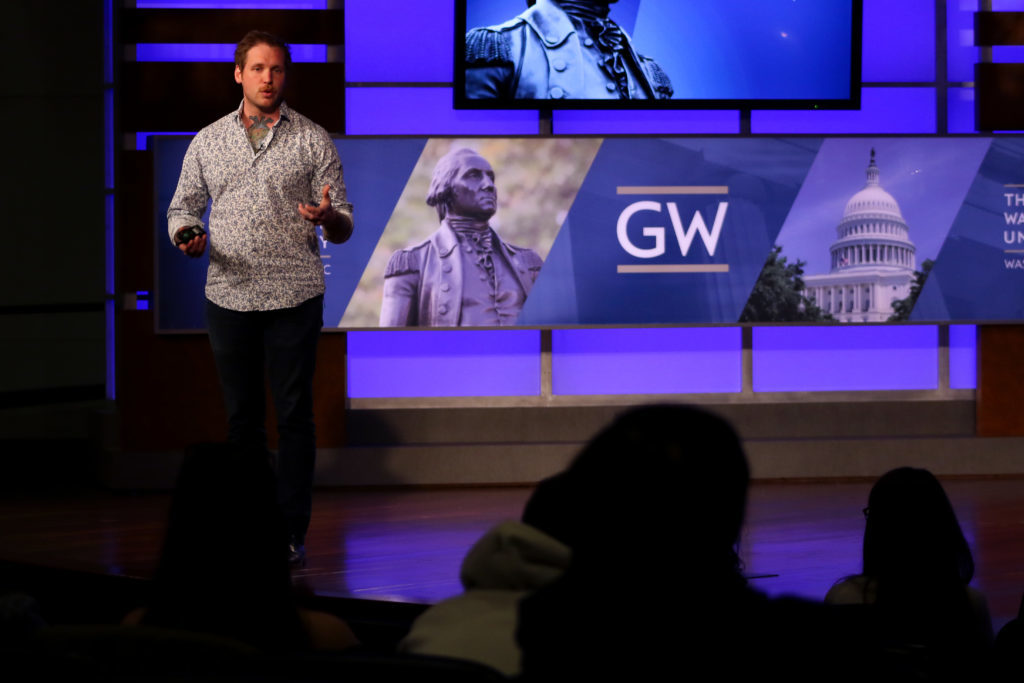A male survivor of sexual assault spoke to about 35 students in Jack Morton Auditorium Sunday about the importance of preventing sexual violence on college campuses.
The event, sponsored by the Panhellenic Association and the Interfraternity Council, featured sexual assault survivor Tim Mousseau as the keynote speaker. Mousseau has presented to thousands of students at more than 200 universities across the country.
Mousseau discussed how storytelling could serve as a way to overcome the trauma following a sexual assault and how to encourage students who had not experienced sexual assault to empathize and support those who had.
Mousseau began his talk by discussing a personal story — how he uncovered his sexual assault several years after it occurred. Mousseau said he hoped his story would transform how sexual violence is discussed in society.
“Right now, the way that we talk about sexual assault in the United States is broken,” Mousseau said. “Right now, the only times we are having conversations on this topic is when it happens to someone we know, and if that’s the only time we’re talking about it, then that is far too late.”
Mousseau addressed the prevalence of sexual assault on college campuses today, noting that the overwhelming majority of assailants — about 99 percent — are men. He said men must play a leading role in preventing sexual assault.
“To the men in the room, I thank you for coming, but here’s the thing — I am not blaming you,” he said. “But I am asking you, ‘What are you doing to help stop it?’”
Mousseau said the ambiguity about what consent is in social situations contributes to sexual violence on college campuses. He highlighted the importance of establishing the definition of consent early on, explaining that “sexual values” — one’s standards for consent — may differ widely from person to person.
“Every one of you, every one of your members, every person in your life has different sexual values,” Mousseau said. “The problem is you can’t support each other, you can’t support your brothers or sisters, if you’re not having conversations about these things.”
Mousseau said the use of misogynistic or otherwise offensive language can often act as a warning sign to a potentially dangerous environment.
“What research shows us is that when we are willing to use or tolerate sexually violent language, we are willing to engage in or be complicit in sexually violent behavior,” Mousseau said.
Mousseau said bystanders who witness potentially dangerous situations frequently use social awkwardness as an excuse not to intervene. He noted that while an awkward encounter or moment of action may cause temporary discomfort, his status as a survivor of sexual assault will remain with him.
“Five years from now, 10 years from now, this will always be my story, I will always be a survivor,” Mousseau said. “And anyone could have stopped that.”





